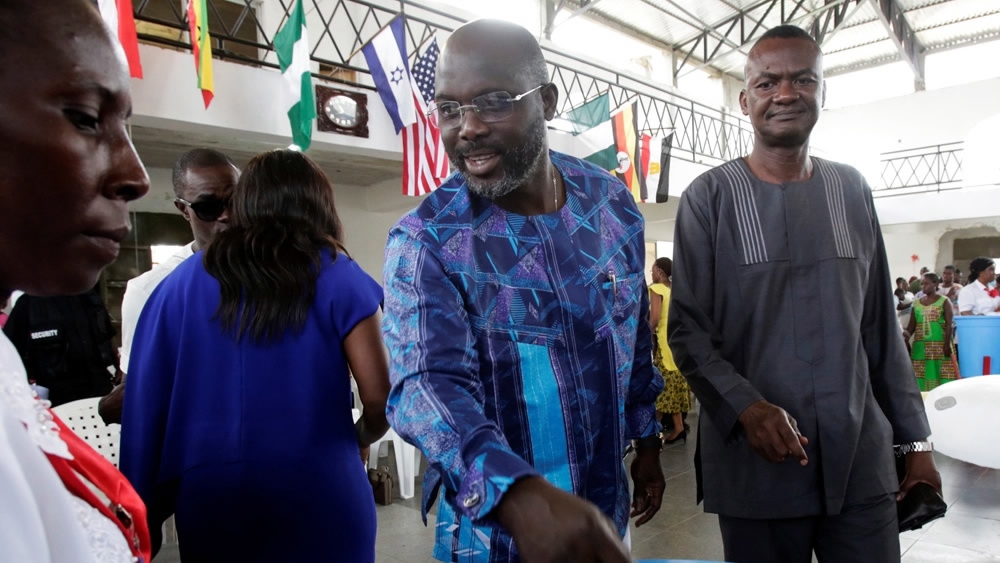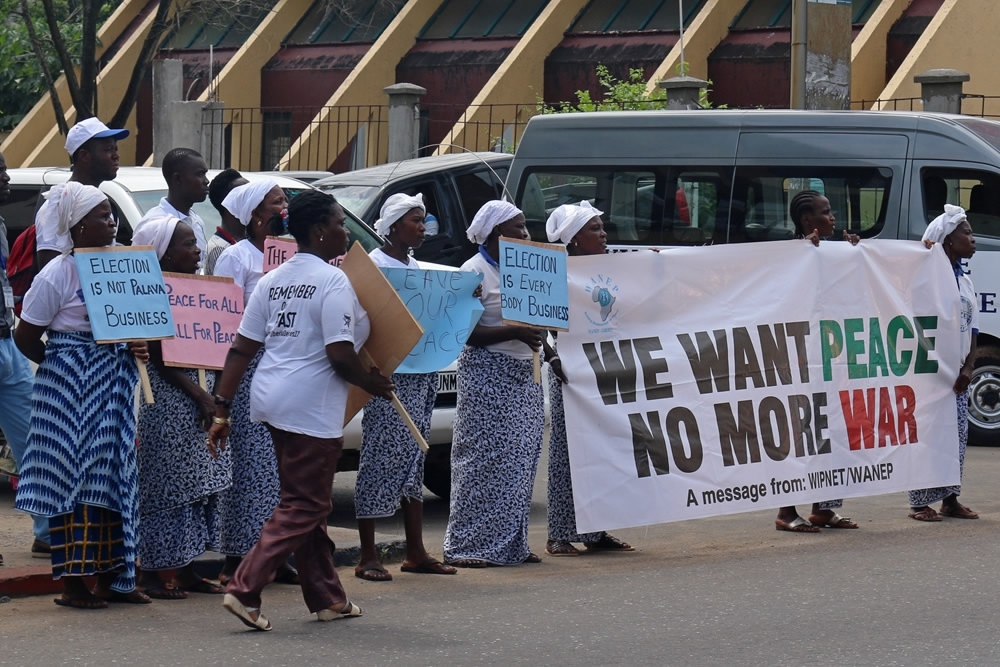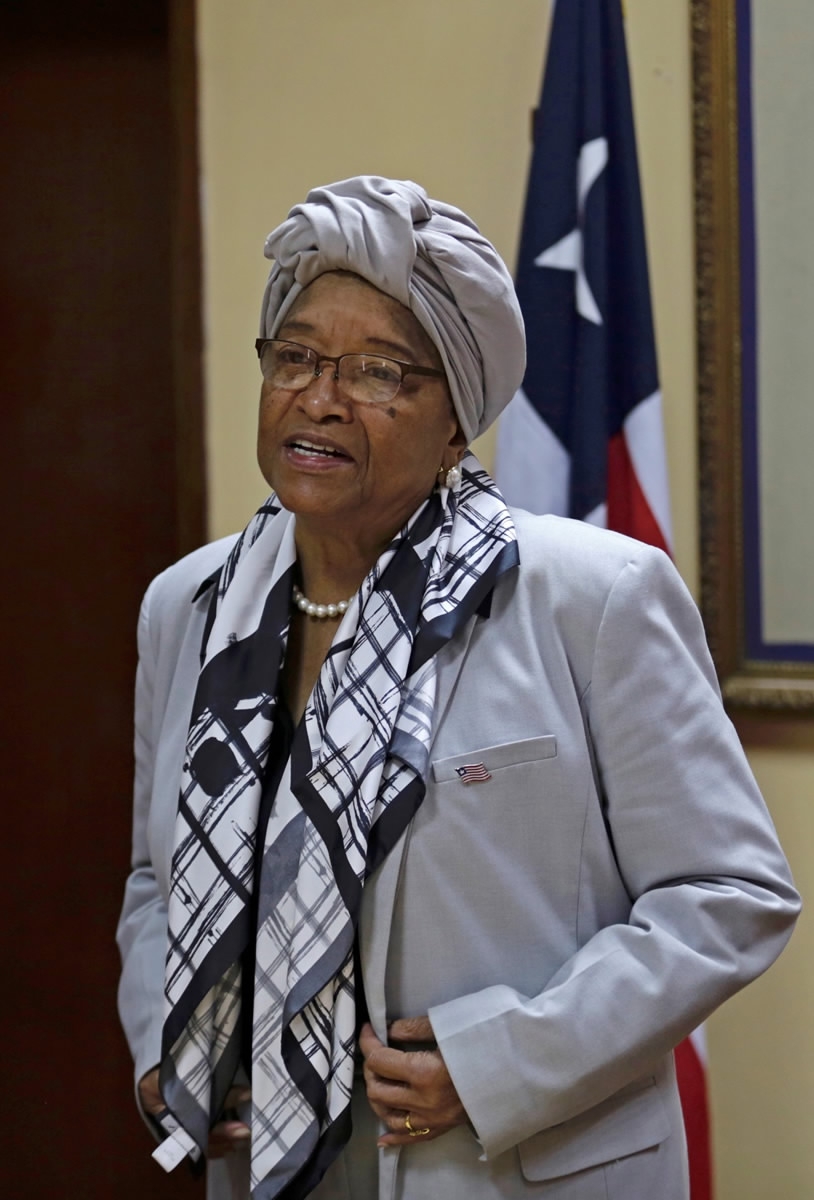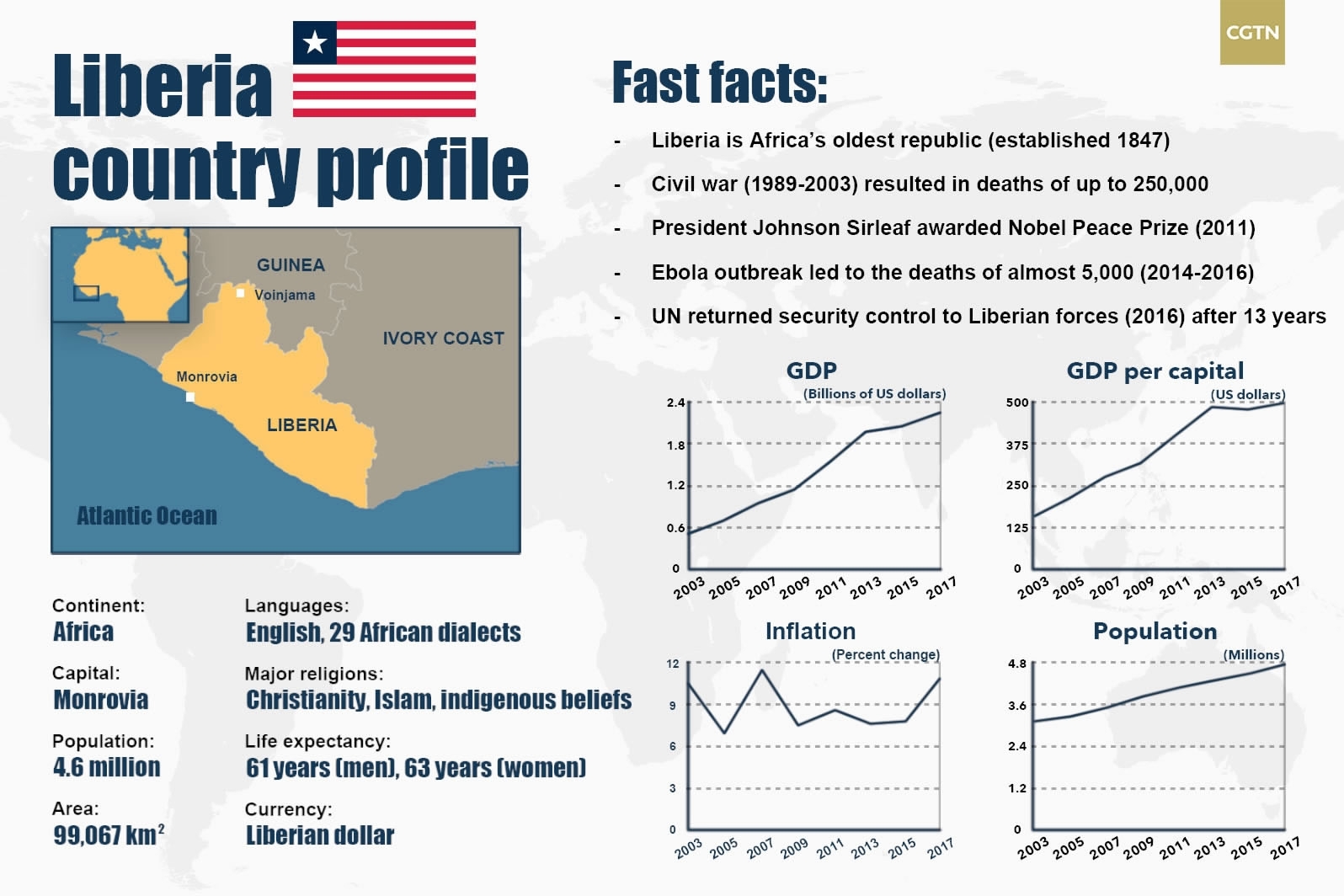
Politics
08:40, 02-Nov-2017
Liberia's Supreme Court halts presidential runoff over fraud accusations
CGTN

Liberia's Supreme Court has halted preparations for next week's presidential run-off vote between former soccer star George Weah and Vice President Joseph Boakai until it considers a challenge to first round results by a losing candidate who alleged fraud.
The decision casts further doubt on the October 10 poll that losing parties say was marred by foul play at polling stations and at the highest levels of government.
It could also delay a second-round vote scheduled for November 7 to find a successor to President Ellen Johnson Sirleaf, who won a Nobel Peace Prize in 2011 and is the country's first elected leader since a 14-year civil war ended in 2003.

Women hold banners calling for peace during a mediation meeting held by ECOWAS for Liberia's presidential runoff election in Monrovia, Liberia, November 1, 2017. /Reuters Photo
Women hold banners calling for peace during a mediation meeting held by ECOWAS for Liberia's presidential runoff election in Monrovia, Liberia, November 1, 2017. /Reuters Photo
Weah won the first round with 38.4 percent of the vote to Boakai's 28.8 percent.
In a writ issued late on Tuesday, the court instructed the Liberty Party of third-placed Charles Brumskine, who made the complaint, and the National Elections Commission, to file briefs by Thursday.
"This is a big step in the right direction," said Liberty Party Chairman Benjamin Sanvee. "The Court recognizes the gravity of the issues and has taken action in defense of the law and democracy."
This week, Boakai's ruling Unity Party announced it was backing the legal challenge. It accused Sirleaf, one of its own members, of interfering in the October vote by holding private meetings with election magistrates.
Sirleaf denied the meetings were inappropriate.

Liberia's President Ellen Johnson Sirleaf speaks during a news conference at the Presidential Palace in Monrovia, Liberia, October 12, 2017. /Reuters Photo
Liberia's President Ellen Johnson Sirleaf speaks during a news conference at the Presidential Palace in Monrovia, Liberia, October 12, 2017. /Reuters Photo
Observers from the European Union and the Carter Center say they saw no major problems with the first round vote.
The Supreme Court's decision is an example of an increasingly assertive role some African judiciaries are playing in overseeing elections. Kenya's Supreme Court annulled the results of a presidential election in August.
National Elections Commission Chairman Jerome Korkoya questioned the need for the Supreme Court's decision, which he said has halted preparations for the vote, including training polling station staff.
"Let me categorically say I see no reason, legal or otherwise, for such an order," he told reporters. "The election was transparent and credible."

West African leaders held mediation talks Wednesday with all sides involved in Liberia's disputed election.
Attempting to head off the crisis, Sirleaf hosted Guinean President Alpha Conde and Togolese leader Faure Gnassingbe along with Weah and Boakai to "listen to the various concerns and bring their expertise to bear on the table with a view to resolving those issues," a statement from her office said.
Conde is currently serving as Chairman of the African Union, while Gnassingbe chairs the regional body ECOWAS (Economic Community of West African States).
12580km
Source(s): AFP
,Reuters

SITEMAP
Copyright © 2018 CGTN. Beijing ICP prepared NO.16065310-3
Copyright © 2018 CGTN. Beijing ICP prepared NO.16065310-3